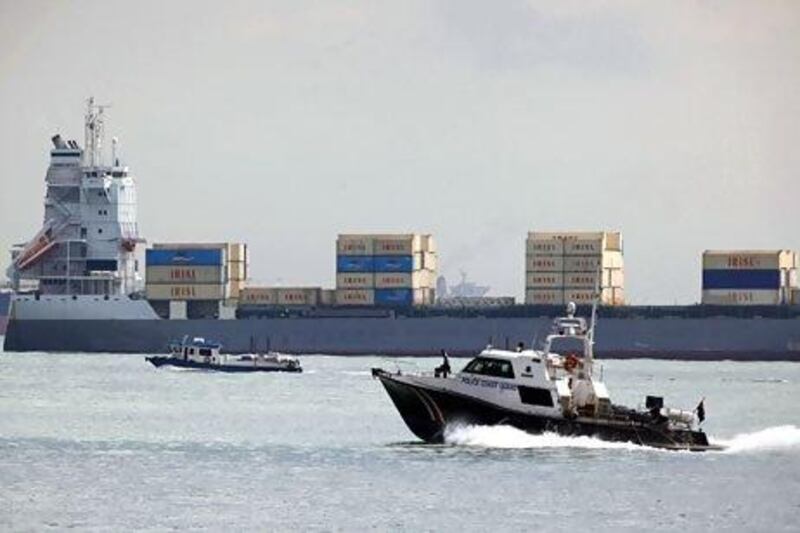UAE companies with ties to Iran are reassessing their links to the country as the latest sanctions from the United States threaten them with penalties.
Business has already become progressively tougher for those companies with commercial ties to the Islamic republic as banks cut finance and the Iranian currency sinks.
But US sanctions that came into force on July 1 close the door on Iran trade even further by specifically targeting non-US businesses and individuals dealing with Iran's energy, shipping and metals industries.
"I'm aware that companies are recalibrating their activities in Iran," said Patrick Murphy, the financial director at the law firm Clyde & Co in Dubai. "These are not the sort of companies that would have been hit by the more specific earlier sanctions, but the broadening of these sanctions is making them reassess things."
The UAE has been in the front line of the steady ratcheting up of US, EU and UN actions against a country that was once one of its leading trading partners. Trade between the two countries has sunk by nearly a third last year to Dh25 billion, down from Dh36bn the year before, according to data from Dubai Customs.
Some of the decline has been blamed on increasingly cautious banks withdrawing credit lines to Iranians or anyone seeking finance for trade with Iran. As Iran's economy has buckled under the weight of international sanctions, the currency has slid by 80 per cent in two years, making it hard for Iranian buyers to pay for goods from UAE. It has since rebounded by about 15 per cent after the presidential election victory of Hassan Rouhani, seen as a moderate cleric.
But the latest sanctions could have the biggest effect yet. The Iran Freedom and Counter-Proliferation Act (IFCA) threatens to bar travel to America, US export licences and government contracts and financial services to firms dealing with Iran's shipping, shipbuilding and energy sectors.
Companies trading precious metals, graphite and other metals with Iran face similar penalties.
The action on precious metals is aimed at depriving Iran of its use of gold to barter for goods it cannot pay for through conventional methods because of previous financial sanctions. The Tehran government has swapped its oil and gas for gold with countries such as Turkey. Iran then uses the gold to buy other imports.
IFCA also blacklists five shipping and energy companies: IRISL, NIOC, NITC, South Shipping Lines Iran and Tidewater Middle East.
"The risk for non-US persons now is that if you start dealing with these companies you are likely to have your assets blocked," said Mr Murphy.
Several UAE companies have already been blacklisted by US authorities for engaging with sanctioned entities. The US state department on May 31 sanctioned Niksima Food and Beverage, a Dubai-based frozen yogurt company, for "knowingly engaging" in a transaction for the purchase of petrochemical products from Iran. In April, Al Hilal Exchange and Al Fida International General Trading were also blacklisted by the US treasury.





